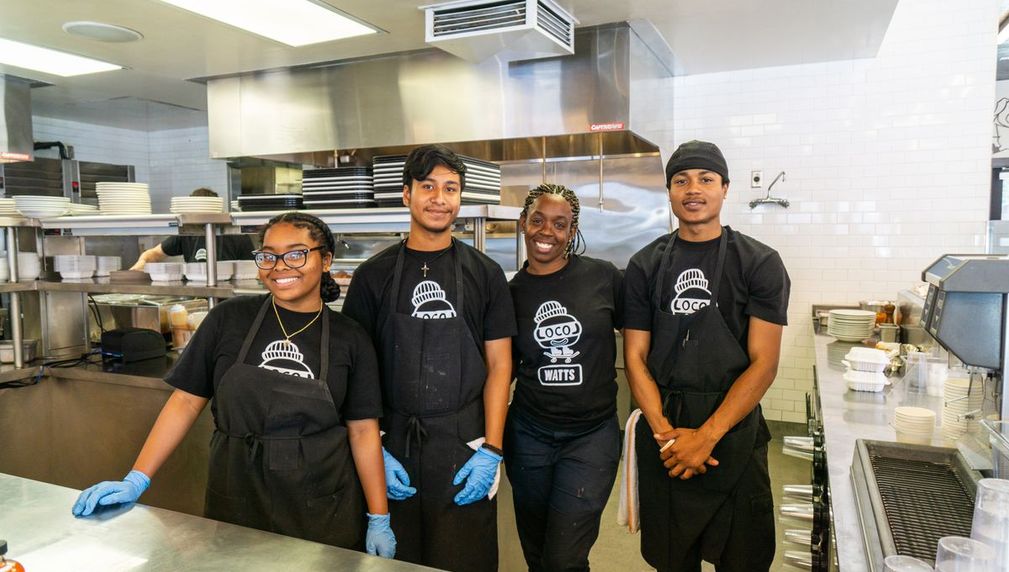LocoL, a culinary training program in Watts
We will expand our culinary job training program for ages 18-24 at LocoL, a nonprofit restaurant in Watts. By focusing on job training in the culinary industry, an area that is severely underrepresented in Watts and other food deserts, we can increase equitable access to long term careers with family-sustaining wages and create a model for a more inclusive food system.

What is the primary issue area that your application will impact?
Youth economic advancement
In which areas of Los Angeles will you be directly working?
South LA
In what stage of innovation is this project, program, or initiative?
Expand existing project, program, or initiative (expanding and continuing ongoing, successful work)
What is your understanding of the issue that you are seeking to address?
As a USDA-designated food desert, sit-down restaurants with healthier options are rare in Watts, and fast food restaurants dominate the landscape. Restaurants have always served as a pathway to long-term career growth, yet with limited restaurant jobs, young people living in Watts lack the same access to economic opportunity as other parts of Los Angeles. Additionally, culinary training programs that often serve as a pipeline to hospitality and culinary careers are located outside of their community and young people in Watts must commute long distances to receive these educational opportunities, if they even have the resources to travel that far. LocoL aims to solve these issues, by providing a hyperlocal culinary training and education program to bring the opportunity to where young people live.
Describe the project, program, or initiative this grant will support to address the issue.
In 2015, LocoL was founded by chefs Roy Choi and Daniel Patterson as a new kind of restaurant in Watts, built on the idea that everyone deserves high-quality food, a good job, and an opportunity to fulfill their potential. By providing world-class culinary training, LocoL launched the careers of many Watts residents, including Chef Keith Corbin, who went on to open Alta Adams with Chef Daniel, which has been an annual mainstay on the L.A. Times 101 Best Restaurants list. By increasing access to opportunities for culinary training and education at LocoL, our goal is to recreate Chef Keith’s success on a larger scale for young people just starting out in their careers.
Our program provides hands-on training, led by experienced chefs, where young people can learn the cooking techniques and skills for working within a professional kitchen, as well as soft skills, such as emotional intelligence and conflict resolution. We currently partner with workforce development agencies to recruit young people to join our culinary training program, but these programs are only able to provide 100-120 hours of paid training. Higher-resourced programs in other parts of Los Angeles are able to provide more paid training hours, creating an uneven playing field in the job market. Through this grant, we plan to expand our training program to provide a more comprehensive education that will give young people in Watts access to the same opportunities as their peers in other communities.
Describe how Los Angeles County will be different if your work is successful.
LocoL demonstrates the importance of hyperlocal job training to create equitable access to economic opportunity. We will build a pipeline from our training program in Watts to culinary job opportunities in other parts of L.A. County. Long term, this strategy will also help to develop the local food industry in Watts. We envision that, similar to Chef Keith, graduates will achieve success in the culinary industry, offer job placement for future program graduates, prioritize community leadership, and reinvest in Watts. In this way, we can help transform the food economy in Watts and start building a system of economic opportunities for the next generation of young people, so they don't need to travel outside of their community to receive the education and job training they need to thrive in their careers.
Approximately how many people will be impacted by this project, program, or initiative?
Direct Impact: 30
Indirect Impact: 5,000